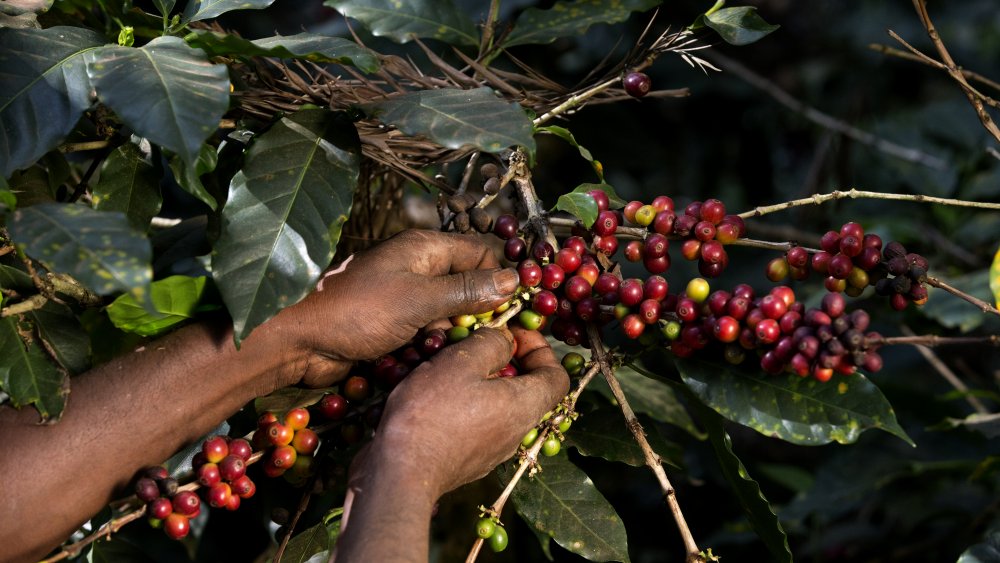The True Reason You Can't Buy Naturally Decaffeinated Coffee
There are a number of methods by which coffee beans are decaffeinated (via Scientific American). Lots of progress has been made since its inception in 1905, when a hazardous chemical called benzene was used.
Both green and already-roasted coffee beans can be decaffeinated, and the process for all of the three major methods involves making the beans wet so that the caffeine becomes soluble and then heating them to between 70 and 100 degrees Celsius. Then, either water, carbon dioxide, or solvents are used to extract the caffeine from the beans.
But it seems like perhaps there should be a simpler and more natural way to produce decaffeinated coffee.
Decaf lovers were likely excited in 2004 when a decaffeinated coffee plant was discovered in Ethiopia (via The Guardian). Unfortunately, the coffee plants were extremely hard to breed and weren't commercially viable. Brazilian scientists got their hands on the seeds of some naturally-decaffeinated coffee plants and the government provided the researchers $1.2 million in grant funding and also issued an order to keep the location of the trees secret (via Decadent Decaf).
Issues with a natural decaf coffee plant
The research seemed promising, with the scientists announcing that the new trees could be planted in less than five years. The issue, however, was that coffee plants take quite a long time to mature — around five years, in fact. And unfortunately, the researchers found that as the plants grew older, the caffeine levels in the beans increased with age.
While some are wary of the chemicals used in the decaffeination process, a naturally decaffeinated plant could contain chemicals for other reasons. In addition to being a stimulant in humans, in coffee plants, caffeine serves as a natural insecticide. If scientists are ever going to come up with a successful commercial decaffeinated plant, it will be even more susceptible to insects due to a lack of caffeine. As a result, pesticides and insecticides may have to be used in large amounts, making the naturally decaffeinated coffee not that natural at all.

